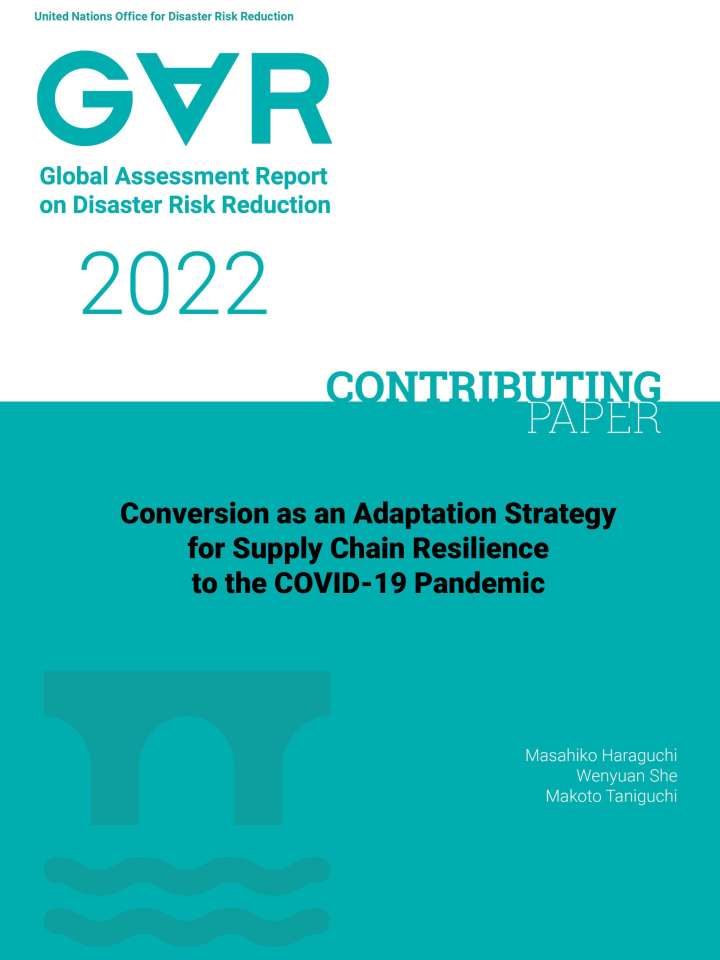Conversion as an adaptation strategy for supply chain resilience to the COVID- 19 pandemic
This contributing paper proposes a new typology of an adaptation strategy – conversion strategy – as a countermeasure to manage risks in interconnected supply chains in the private sector during the pandemic. Supply chain disruptions due to natural hazards have been studied in major manufacturing-centered economies, such as Thailand, the US, Japan, and China. However, few studies examine the nature of interconnected risks in supply chain disruptions due to biological hazards, such as the COVID-19. This article delineates the nature of systemic risks by comparing supply chain disruptions due to biological with ones due to natural hazards. The study also analyzes if the established experiences in handling disruptions due to natural hazards can help companies manage systemic risks due to biological hazards, including the COVID-19.
The study's analysis of cases during the COVID-19 pandemic indicates that a supply chain’s adaptation strategy – conversion – can effectively address the pandemic situations while proposing a new typology of different types of conversion strategy. The researchers conclude what types of policy supports are needed to help companies implement conversion measures while referring to the previous experiences addressing natural hazard risks.
